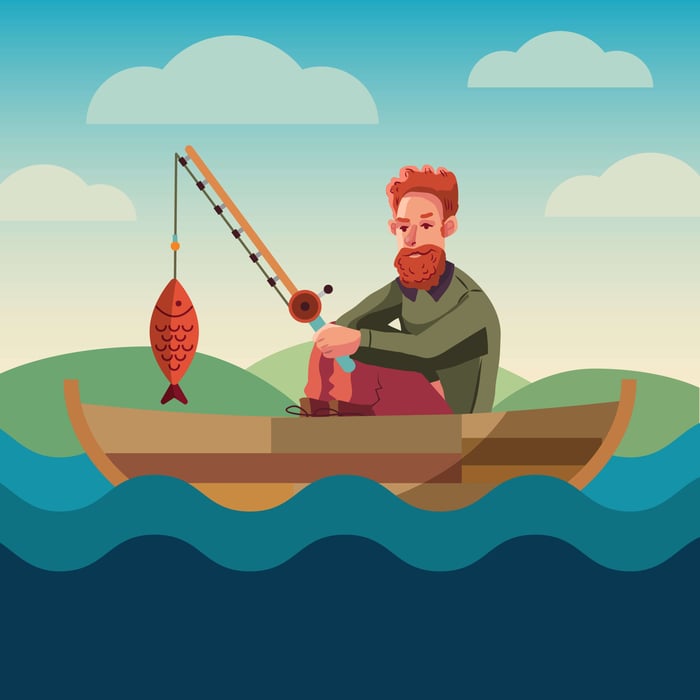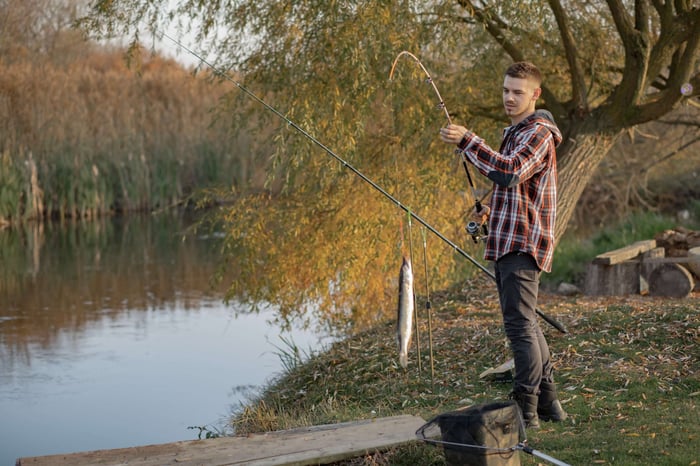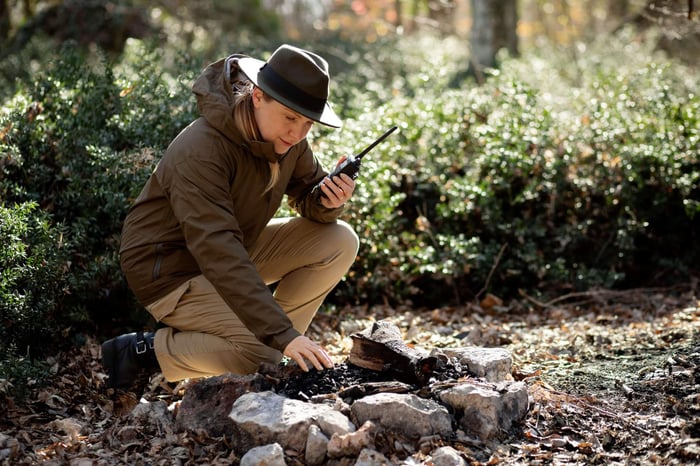Boating is one of the pleasures of life. The hair blown by the wind, the sun shining in your face, and the soothing motion of the waves—it's not much better than that. Whether you're out cruising with friends, fishing yourself, or simply sightseeing along the coast, being on the water is like being free. But with that freedom comes a caveat: you're not by yourself out there. There are other boats, such as fishing boats, in the same waters, and colliding with one can ruin your day in a hurry if you're not ready. So, what should you do if you encounter a fishing boat while out in your vessel?? It's a question that every boater must ask, because it keeps everyone safe and good vibes flowing.
Here in this article, we're going to simplify everything for you. We'll discuss why fishing boats are unique, how to identify them, what the law stipulates, and—most importantly—what should you do if you encounter a fishing boat while out in your vessel? . We'll make it plain, useful, and straightforward, just like a buddy talking to you while sipping a cold beverage at the dock. By the time we're done, you'll feel comfortable driving around fishing boats, wherever your adventures may lead you. Let's get started!
H2: Why Fishing Boats Are a Big Deal on the Water
Fishing vessels aren't another blip on your radar. They're usually working boats, which means they're out there for a reason other than pleasure. Perhaps they're bringing in a large catch to sell at the market, or perhaps they're a tiny crew attempting to catch dinner. Either way, their purpose distinguishes them, and that's why what should you do if you encounter a fishing boat while out in your vessel is such a vital question.
Consider it: a fishing vessel could have nets laid out wide, lines back behind, or heavy equipment on the deck. That does not just keep them occupied—it makes them more difficult to handle. If you're tearing down the water in a sleek speedboat, you can pivot on a nickel. A fishing vessel that is pulling a trawl net? Not so good. That's why the global boating regulations, known as the Colregs (short for Collision Regulations), accord them privileged status when they're "engaged in fishing." It's not favoritism—it's physics and safety.
But it's not all rules. There's a human element, as well. Fishing crews put in long hours, sometimes in adverse conditions, and a careless boater can ruin their day—or their business—in seconds. Imagine you're reeling in a net load of fish when along comes some hotshot speeding by and catches up your gear in it. It's infuriating, isn't it? So, how are you to handle it if you meet a boat with anglers on it when you're out in yours? Begin by appreciating what they do out on the water. It's the beginning to being a considerate neighbor on the water.
Fishing boats are in every flavor—small dinghies with a solitary angler, medium-sized charters with a handful of rods, or massive commercial trawlers that resemble floating factories. Each is worthy of a bit of respect, and understanding how to identify them and respond is important. Let's proceed to that next.
H2: Step 1 – How to Identify a Fishing Boat from a Mile Away
Before you can determine what should you do if you encounter a fishing boat while out in your vessel. Fishing boats don't necessarily shout "I'm fishing!" from a distance, particularly if you're a boating newbie or the water's filled with traffic. So how do you know?
Begin with the obvious: examine for fishing equipment. Nets thrown over the side, poles jutting out a long way (those may be trolling or outriggers), or lines that drop off into the water are a sure thing. Larger boats will have winches, cranes, or enormous reels on the deck—similar to the kind you'll find on programs such as Deadliest Catch. The smaller boats will only have one or two men with rods, but even those could be tending the water in some form.
And then there are the official indicators. By day, a boat that's actually fishing may fly special shapes to indicate. Two cones with points touching—such as an hourglass—or a basket in the rigging indicate "I'm fishing, and I can't go easily." At night, they use lights instead: green over white if they're trawling with nets, red over white if they're using lines or other equipment. These signs aren't ornamentation—they're a legal warning that they're limited in their capacity to evade you.
What if you don't observe any of that? Well, conduct can give you a tip, too. A boat bumping along in one place, going really slowly, or working back and forth may be fishing, even though the equipment's not clear. I've watched boats that appeared to be just lounging, then notice a faint line extending out behind them afterward. Sowhat should you do if you encounter a fishing boat while out in your vessel when you're unsure? Slow down, take a second look, and assume they could be working until you know otherwise. Better safe than sorry.
H2: Step 2 – Decoding the Rules of the Water
Boating may seem like a wild frontier, but it's regulated—good regulation, too. They're in place to prevent us from crashing into one another like bumper cars. So, what should you do if you encounter a fishing boat while out in your vessel? A large part of the answer lies in knowing the "rules of the road" at sea, established in the Colregs.
Here's the thing: an actively fishing boat, i.e., one with nets, lines, or other equipment in the water, has priority over most power-driven craft. That means your average motorboat or yacht. Why? Because their equipment anchors them. A trawler with a net deployed can't just zip out of your path—it could take them minutes to reel it in, if they can at all. The regulations refer to them as "vessels restricted in their ability to maneuver," and that makes you the "give-way" vessel. In English, it's simply your responsibility to avoid them.
But wait—not all the fishing boats you pass are "fishing" according to the regulations. If they're making their way with no gear in sight—i.e., returning to port or looking for a new location—they're just another powerboat. Then the normal pecking order holds: powerboats give way to sailboats, and in a crossing scenario, the vessel on your starboard (right) side has priority. Overtaking? You may pass, but you must do so safely.
So,what should you do if you encounter a fishing boat while out in your vessel ? Check whether they are working. Search for those signs or equipment we discussed. If they are working, leave them alone. If they're not, treat them like any other boat and proceed with the customary dance of navigating. It is all about assessing the situation.
H3: When You're Both Powerboats—What Then?
Assume that you're both in motorboats, and the fishing boat is not engaged in fishing. what should you do if you encounter a fishing boat while out in your vessel in such a situation? It's relatively easy, but still requires some caution.
If you're passing each other, the vessel on your port side has right of way—same as on land. If you're approaching from behind them and need to pass, go ahead and pass, but don't just accelerate. Fishing vessels may be moving slower, and their crew may be distracted, getting gear ready or unwinding from a catch. Ease off a bit, signal your intention (more on that later), and pass with lots of clearance.
I've seen it go wrong before. A friend of mine attempted to pass behind a fishing boat in a constricted channel, thinking they would move. They didn't—apparently, they were putting out lines—and he found himself too close for comfort. Had he waited just a bit longer, he would have avoided the stress. So, what should you do if you encounter a fishing boat while out in your vessel ? Play it cool and give them the benefit of the doubt.
H2: Step 3 – Taking Action to Stay Safe
You've seen the fishing boat, and you've got the regulations in your mind. So, what should you do if you encounter a fishing boat while out in your vessel ? It's time to make your move. Here's how to do it correctly.
Ease Off the Gas
First things first: slow down. Zooming past a fishing boat at top speed is amateur hour. Your wake can rock their boat, disrupt their gear, or even knock somebody off balance if they're working on deck. And going slower allows you time to figure out what's going on—Are they in motion? Are they anchored? Do they have nets deployed? A consistent pace keeps everyone relaxed.
Change Your Path
If they have the right of way, avoid them. This may involve making a port (left) or starboard (right) swing around them, depending on where they are. If they're traveling, try to pass astern of them—imagine giving a huge tractor truck room to merge on the road. If they're stationary, pass far enough around with space. Fishing equipment can trail a great distance beyond the length of the boat—often hundreds of feet—so don't follow their wake.
Let Them Know Your Plan
Boats don’t have turn signals, but you’ve got options. A quick horn blast works—one short sound for “I’m turning starboard,” two for “port.” If you’ve got a VHF radio, even better. A call like, “Fishing vessel ahead, this is [your boat name], passing on your starboard side,” can clear the air. Not every fishing boat will answer—they might be too busy—but it shows you’re trying.
What if they don't reply? what should you do if you encounter a fishing boat while out in your vessel ? Presume they are concentrated on their job and move slowly. The idea is to avoid getting into trouble, not to initiate a conversation.
H3: Avoiding Nets, Lines, and Submerged Dangers
Fishing boats usually have equipment you can't spot from the water. Nets could be submerged, lines could hang back or radiate to the side, and buoys could define the perimeters of their equipment. Flying over this material isn't only rude—it's inconvenient for you, as well. Your propeller can catch, your rudder can stick, and next thing you know, you're the one hung up. So, what should you do if you encounter a fishing boat while out in your vessel ?
Keep them at arm's length. How far? At least 100 yards if you can manage it, farther if they're large commercial vessels with heavy nets. I know fishermen who've told me about guys coming in too close and wasting hours untying line from their props—while the fishing crew's either laughing at them or yelling at them. If you notice buoys or floats in the water, they may be attached to their equipment. Avoid them, as well. The additional loop around may take a minute off your journey, but it's worth it compared to a wasted day.
H2: Step 4 – Keep It Respectful and Patient
Boating's a community, even out there in the middle of the water. Fishing boats, particularly commercial ones, are sometimes somebody's livelihood, not merely a weekend getaway. So what should you do if you encounter a fishing boat while out in your vessel ? Be classy.
Don't drive by at full speed, raising a wake that floods their deck. Don't ride your horn like you own the world unless it's an actual signal. And don't push them around—give them space to get their job done. If you're fishing too, find your own piece of water rather than hanging around theirs. Patience and respect get you a long way.
I recall one occasion where I was riding with some buddies, and we encountered a small fishing boat taking in crab pots. We could have blazed past them, but instead we slowed up, waved at them, and yielded. They waved back at us, and you felt nice knowing you hadn't disrupted their cadence. That's the type of feel you want to be out there.
H3: What If They're Blocking Your Route
Occasionally, a fishing boat anchors itself exactly where you have to go—such as a channel or your shortcut of choice. what should you do if you encounter a fishing boat while out in your vessel ? If they're working, you have two options: wait or take a detour.
Waiting's okay if they're leaving soon—look for indications they're finishing up, such as reeling in nets. Detouring works if there’s room to go around, but be mindful of shallow spots or other traffic. Channels can get dicey, but safety beats convenience every time. If they’re not fishing and just hanging out, a polite radio call might nudge them along: “Hey, this is [your boat name], any chance you’re moving soon?
” Keep it friendly—yelling doesn’t win friends on the water.
H2: Step 5 – When to Call for Backup
Most encounters with fishing boats go swimmingly. But what happens when things become bizarre? what should you do if you encounter a fishing boat while out in your vessel and they're heading straight for you, or you have no idea what they're going to do next?
Attempt the radio first. Use VHF Channel 16 if there's a genuine emergency or need to hail someone. Voice something loud: "Fishing boat at [location], this is [boat name], what do you plan?" If there is no pickup and a crash is imminent, sound five short horn blasts—it's the signal for "danger" and evacuate. Hard turn, slow up, whatever brings you out of harm's way.
If it's truly awful—such as they're being irresponsible or you're in serious trouble—call the Coast Guard on Channel 16. Provide them with your location, a description of what's happening, and let them handle it. But that doesn't happen very often. Nine times out of ten, a bit of caution and common sense will take care of it.
H2: Real-Life Lessons from the Water
Let's paint some pictures, though. You're going along, and there's a trawler with nets out, plugging along slow. what should you do if you encounter a fishing boat while out in your vessel ? Take it easy, take a look at their direction, and pass behind them wide. Done.
Or perhaps it's a small skiff along the shore, a fellow with a rod. What should you do if you encounter a fishing boat while out in your vessel ? Other than having nets or lines that will limit them, they're just another powerboat. Pass safely, give a wave if you're in a generous mood, and continue on.
Here's an actual one from my logbook: I was out last summer, and a large commercial boat was pulling in a net right in front of me. I could have pushed through, but I waited ten minutes for them to finish. They gave me a thumbs-up as I went by—worth the wait. Compare that to a guy I saw who didn't wait, got hooked, and spent an hour cursing his bad luck. Guess who had the better day?
H2: Wrapping It Up—Be Ready for Anything
So what should you do if you encounter a fishing boat while out in your vessel ? It's not brain surgery: see them early, familiarize yourself with the regulations, ease up, leave them room, and be respectful. Whether it's a small boat with a single angler or a massive trawler crewed to the hilt, the same rule applies. You're both using the water, and a bit of consideration is worth it. Boating is about freedom, to be sure, but it's also about taking care. The next time you're out and a fishing boat comes across your bow, you'll know just what should you do if you encounter a fishing boat while out in your vessel ? Leave it in the comments—I'd love to hear how you've handled this yourself. Safe travels, and see you on the water!





